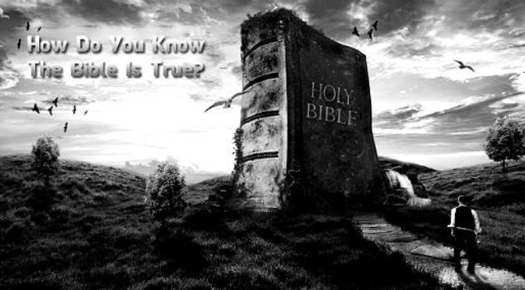
The Bible is a collection of sacred texts or scriptures that Jews and Christians consider to be a product of divine inspiration and a record of the relationship between God and humans. The view that the Bible should be accepted as historically accurate and as a reliable guide to morality has been questioned by many scholars in the field of biblical criticism. Some parts of the holy book are adaptations and transformations of characters and events occurring in Mesopotamian myths. Parallels have also been drawn between Greek myths and the life of Jesus.
One of Israel’s top newspapers, “Haaretz,” reports that the Bible and its stories about the first man and the creation of the world are not true because there is no physical evidence to back them up. The paper said researchers feverishly searched for evidence with “Scripture in one hand and cutting-edge technology in the other.”
"Is the Bible a True Story," the headline asks. It goes on: “No city walls have been found at Jericho, from the appropriate era, that could have been toppled by Joshua or otherwise. The stone palace uncovered at the foot of Temple Mount in Jerusalem could attest that King David had been there; or it might belong to another era entirely, depending who you ask.”
Of course, this isn’t a novelty, because most literal interpretations of the Bible fail to line up with history and science, and Creation myths are no exception. According to Newsweek, Young Earth Creationism “directly fails science’s demands for coherence and hypothesis testing.”
The mounting evidence against the Bible means fewer Americans than ever before are trusting scripture as gospel. Only 35 percent of Americans read the holy book at least once a week, while 45 percent seldom or never do, a Pew Research Center report in April found. About 36 percent of Christians said the Bible should not be taken literally, while 40 percent say it is the word of God. In all, only 24 percent of Americans said the holy book was “the actual word of God, and is to be taken literally, word for word,” a Gallup poll conducted in May concluded.
“This is the first time in Gallup’s four-decade trend that biblical literalism has not surpassed biblical skepticism. Meanwhile, about half of Americans — a proportion largely unchanged over the years — fall in the middle, saying the Bible is the inspired word of God but that not all of it should be taken literally,” the poll said.
Photo Credits: Vimeo
